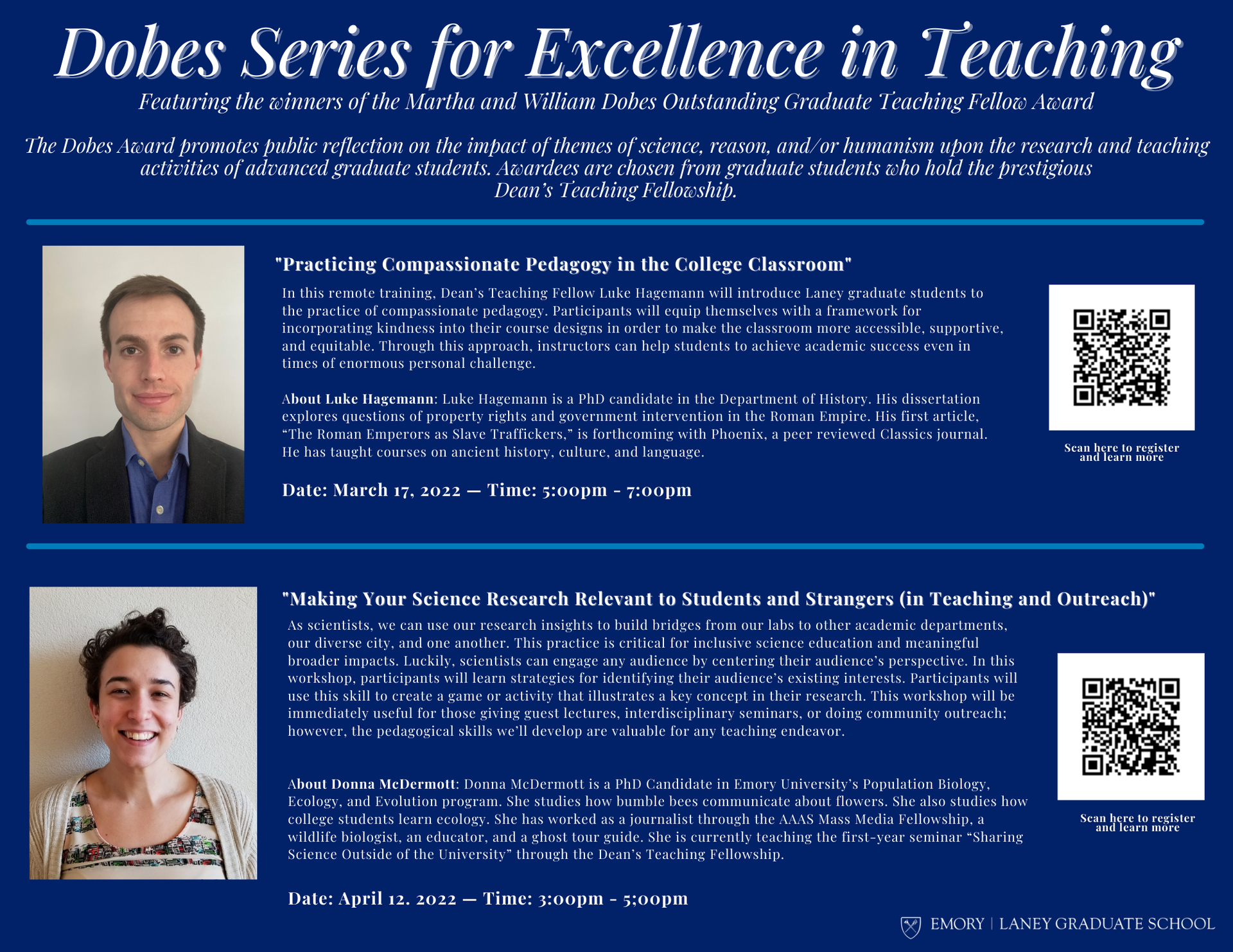Congratulations to history majors Channelle Russell and Bryn Walker on receiving Emory’s prestigious Robert T. Jones scholarship. In 2022 four graduating seniors were selected for the scholarship, which supports one year of postgraduate study at the University of St Andrews in Scotland. Read the Emory News Center’s short biographical profiles of Russell and Walker below, and check out the other recipients of the awards here.
Channelle Russell
An English and history joint major, with a minor in anthropology, Russell has a deep interest in storytelling.
“From a young age, I have been interested in storytelling as a way to explore and interrogate the world,” Russell says.
Finding her major fields as a sophomore, she pursued a course of study devoted to issues of power, race and gender through scholar-writers such as Audre Lorde, Jamaica Kincaid and Toni Morrison, among others. “Like me, they are all Black women with a story to share,” Russell says.
A first-generation college student who resides in Atlanta, she plans to undertake a master’s degree in creative writing in prose at the University of St Andrews. Her academic interests were born from “the silences and gaps of the literary canon,” as she sought “the ghosts of Black women.” Her work as an undergraduate allowed her to negotiate herself into the narratives that she wanted to read, and subsequently into the narratives that she wants to create, hallmarks that can be seen through her work as an arts and entertainment writer with the Emory Wheel and as the editor-in-chief of Blackstar* Magazine.
Awarded a Woodruff Dean’s Achievement Scholarship at the end of her first year, she was described by a recommender as having “an expansive intellect, keen wit, compassion, poise and thoughtful perspectives on various issues in the world.” She is currently a Mellon Mays Undergraduate Fellow, and her honors thesis investigates gender, sound and slavery in textual representation of Jamaican women.
Bryn Walker
A graduate of Emory’s Oxford College, Walker was described by one of her recommenders as a “delightful person who brings humility, good humor and a mature point of view to all that she undertakes.” A history major who was elected to Phi Beta Kappa in 2021, Walker’s research interests relate to the American South, cultural and social movements, public history and historical memory.
She was drawn to undertake a master’s degree in museum and heritage studies because of an interest in the “parallels between memory in the U.S. South, which was part of my undergraduate research focus, and Scottish historical memory. Methodologically, the U.K. has a much more robust tradition of public history and I’d like to expand the possibilities for public history scholarship in the United States.”
A native of Indianapolis, Indiana, the first-generation college student’s time at Emory has been marked by a dedication to service. Currently a research ambassador for Emory College’s Undergraduate Research Program, Walker has also spent time on both the Oxford College and Emory College Honor Councils, helped new students acclimate to Emory as a two-time orientation leader and was a diversity ambassador for Oxford College’s Office of Diversity and Inclusion.
Issues of diversity have played a significant role in Walker’s research experiences to date, including work on country-level migration policy responses to COVID-19, and a 10-week research fellowship studying Confederate monuments in Georgia and tracing the Georgia United Daughters of the Confederacy’s relationship to state government officials.
Beyond Emory, her public history focus has resulted in two internship experiences, one as an interpretive intern with the National Parks Service at Mount Rushmore National Park and the other with the Teaching with Primary Sources Program at the Library of Congress.


